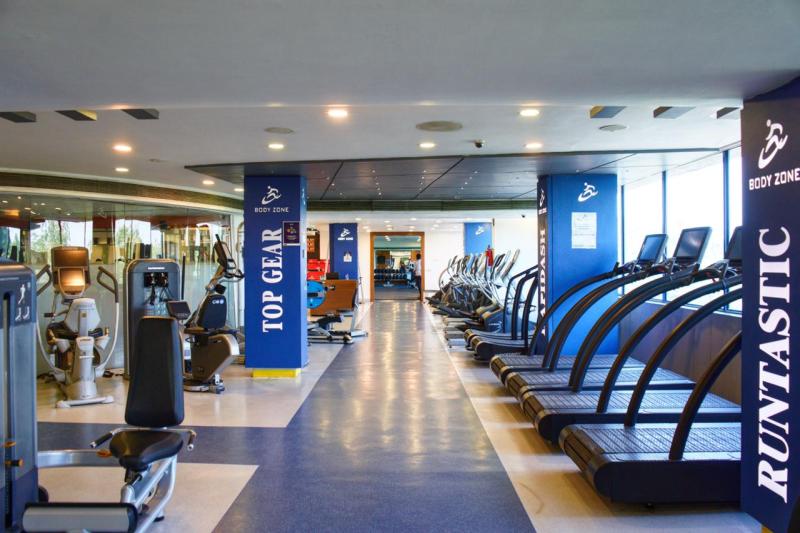Nutrition for Optimal Performance: What to Eat Before and After Workout

Your nutrition plays a very important role when it comes to optimizing your workout performance and your recovery. Most people would know the basics: carb intake gives a boost for energy, and protein's role helps a muscle repair. However, there are some lesser-known, science-backed details that can help take your nutrition game to the next level. This blog looks at what you might eat before and after your workout to give your body the fuel it needs so that you might perform better and recover faster.
Science of Pre-Workout Nutrition
Pre-workout nutrition pumps fuel into your body to build progressive and sustainable energy, strength, and endurance. Now there are many neglected aspects of pre-workout nutrition:
Timing Is Everything
Many people know they should eat before exercising, but not necessarily about the timing. This leaves in enough time for digestion as well as absorption before being used during the workout. However, if there's no time to spare, even a tiny snack 30-60 minutes prior can work, so just make sure it's easily digested and won't upset your stomach.
Science Knows: Research in the American Journal of Physiology found that the anabolic response, or muscle-building processes of your body, could be increased with exercise if you consume carbs and protein 30 minutes before your workout. That means eating those same nutrients after your workout doesn't really have any additional positive effects on your body's ability to rebuild, repair, or grow muscle tissue after exercise.
Are They Really Evil? Carbs
When carbs can and should be in some of your workout routines, they play a very important role in exercise performance, particularly in high-intensity and endurance training. The amount of glycogen-one form of energy stored in the muscles-is the primary fuel source during workouts. When the glycogen level is depleted, then it is not good.
Miraculously, complex carbs like oats, sweet potatoes, and whole grains provide a sustainable release of energy, sometimes better than simple sugars. Simple carbs, however, are the best when the workout is less than an hour because fruits - bananas and apples for instance - provide quick energy without the long digestion process.
A lesser-known tip: Nitrate-rich foods like beets, spinach, and arugula have been found to increase blood flow, decrease the oxygen cost of exercise, and increase performance. Drinking beetroot juice about 90 minutes before exercise makes you more fit.
Don't Forget Healthy Fats
Although fat is often the forgotten component of good pre-exercise meals, it's also the best source of healthy fats found in foods such as avocados, nuts, and chia seeds that break down over time to yield a slower release of energy, particularly during endurance sports like running or cycling. For example, because fats break down more slowly than carbohydrates, they are beneficial in keeping the body supplied with energy over longer exercise bouts.
However, if you're close to your workout time, be mindful about the fats you consume as they have a slower digestive process and might get awkward before an intense exercise.
Hydration: The Totally Forgettable Pre-Workout Ingredient
Hydration is also a very easy thing to forget about when building an appropriate pre-workout plan. Still, it remains a critical ingredient, even as little as 2% less hydration can really limit your performance while at the gym. It should preferably start right, that means you take lots of water prior to the actual work-out.
Post-workout Nutrition: Accelerate Recovery
The Recovery Process. After the end of the workout, the body enters recovery mode. Right post-workout nutrition repairs muscle, refills glycogen stores, and rehydrates the body. Here's what to pay attention to:
Proteins are truly the kings, but don't forget carbs.
Your body will need some protein after working out, since that is what fixes torn and damaged muscle tissues and supports the growth of your muscles. Aim for 20-30 grams of protein after work out. Whey protein has long been considered the gold standard because it is absorbed the fastest, but chicken, eggs, or plant-based proteins like tofu and lentils all do just as well.
Hydration Post-Workout
Vital is to know that your body needs water after exercise, especially if you're dripping in sweat. Of course, water is good enough, but you should not forget the electrolytes - sodium, potassium, and magnesium, which are lost through sweat.
Ever wonder why people take coconut as a post-workout replenisher of electrolyte because it is full of potassium and magnesium-the minerals for our muscles to function during exercise and recover after working out?
Timing Your Post-Workout Meal
For best results, eat food between 30 and 60 minutes post-exercise. This is called the "anabolic window," and this is when your body digests those consumed nutrients as fast as possible for quick recovery. Missing this window doesn't mean you are out of luck; however, taking advantage of it will certainly boost the process incredibly.
Conclusion: Fuel Your Body Right for Peak Performance
Nutrition is the true behind-the-scenes hero of optimal workout performance and recovery. While carbs and protein are likely on your radar, it's where and how you are consuming them that truly make the difference. So, incorporate lesser-known facts for example, benefit-rich nitrate foods, antioxidantal fruits, and omega-3 fatty acids, into your pre and post-workout meals, and you'll really begin to see the difference.
Remember, your body is a machine, and what you put in it before and after you work out matters more than you imagine. The next time you gear up for a workout, plan your meals with intention and watch your performance soar.
Post Your Ad Here
Comments